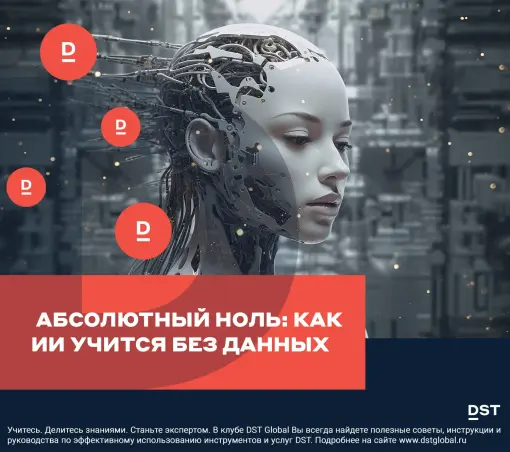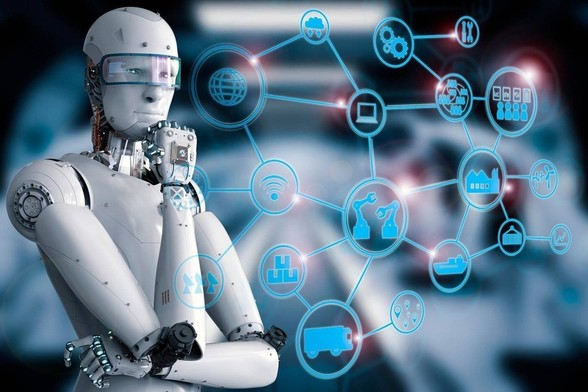Just watched my homemade AlphaGo-ish bot play itself on a 9x9 board: policy heatmaps pulsing, captures snapping, win-prob lines bouncing. Feels like tiny gods arguing over territory. Thinking about opening it up for humans to challenge—should I? 🧠🕹️⚫️⚪️ #Go #AI #ReinforcementLearning #AlphaZero #MastodonTech
#AlphaZero
🧠♟️ Em 2017, o mundo do xadrez mudou para sempre: o #AlphaZero, criado pela DeepMind (Google), derrotou o Stockfish após apenas 4h de autoaprendizado.
Sem bases de dados nem “força bruta” — só redes neurais e autojogo.
O resultado? Um estilo criativo e humano que inspirou motores como Leela Chess Zero e novas variantes de xadrez.
https://www.chess.com/terms/alphazero-chess-engine
#Xadrez #IA #AlphaZero #DeepMind
Абсолютный ноль: как ИИ учится без данных
Absolute Zero Reasoner отличается от традиционных подходов к обучению ИИ, позволяя ИИ обучаться с нуля, без необходимости использования заранее предоставленных человеком данных.
Absolute Zero Reasoner (AZR) представляет собой революционную концепцию в области искусственного...
#DST #DSTGlobal #ДСТ #ДСТГлобал #Абсолютныйноль #искусственныйинтеллект #AbsoluteZero #ИИ #AZR #AlphaZero #DeepMind #парадигмы #Модель
Источник: https://dstglobal.ru/club/1109-absolyutnyi-nol-kak-ii-uchitsja-bez-dannyh
AlphaZero's Flexibility Flaws - Garry Karsparov
Oops, I think I've gone a bit too deep into the #AI rabbit hole today 😳 (a thread 🧵):
Did you know why AI systems like #AlphaGo or #AlphaZero performed so well?
It was because of their _objective function_:
-1 for loosing, +1 for winning ¯\_(ツ)_/¯
Why Artificial Intelligence Like AlphaZero Has Trouble With the Real World (February 2018)
Try to design an objective function for a self-driving car...
1/3
A Implementation of Alpha Zero for Chess in MLX
https://github.com/koogle/mlx-playground/tree/main/chesszero
This curious comparison of approximate energy cost per chess grandmaster:
**Human**: 10,000 hours x 100 W = **1MWh**
**Computer**: 4 hours x 50 W/TPU x 5,000 TPUs* = ***1MWh**
* Alphazero surpassed Stockfish 8 after 4 hours of self-play. https://en.wikipedia.org/wiki/AlphaZero
Pequeños y grandes pasos hacia el imperio de la inteligencia artificial
Fuente: Open TechTraducción de la infografía:
- 1943 – McCullock y Pitts publican un artículo titulado Un cálculo lógico de ideas inmanentes en la actividad nerviosa, en el que proponen las bases para las redes neuronales.
- 1950 – Turing publica Computing Machinery and Intelligence, proponiendo el Test de Turing como forma de medir la capacidad de una máquina.
- 1951 – Marvin Minsky y Dean Edmonds construyen SNAR, la primera computadora de red neuronal.
- 1956 – Se celebra la Conferencia de Dartmouth (organizada por McCarthy, Minsky, Rochester y Shannon), que marca el nacimiento de la IA como campo de estudio.
- 1957 – Rosenblatt desarrolla el Perceptrón: la primera red neuronal artificial capaz de aprender.
(!!) Test de Turing: donde un evaluador humano entabla una conversación en lenguaje natural con una máquina y un humano.
- 1965 – Weizenbaum desarrolla ELIZA: un programa de procesamiento del lenguaje natural que simula una conversación.
- 1967 – Newell y Simon desarrollan el Solucionador General de Problemas (GPS), uno de los primeros programas de IA que demuestra una capacidad de resolución de problemas similar a la humana.
- 1974 – Comienza el primer invierno de la IA, marcado por una disminución de la financiación y del interés en la investigación en IA debido a expectativas poco realistas y a un progreso limitado.
- 1980 – Los sistemas expertos ganan popularidad y las empresas los utilizan para realizar previsiones financieras y diagnósticos médicos.
- 1986 – Hinton, Rumelhart y Williams publican Aprendizaje de representaciones mediante retropropagación de errores, que permite entrenar redes neuronales mucho más profundas.
(!!) Redes neuronales: modelos de aprendizaje automático que imitan el cerebro y aprenden a reconocer patrones y hacer predicciones a través de conexiones neuronales artificiales.
- 1997 – Deep Blue de IBM derrota al campeón mundial de ajedrez Kasparov, siendo la primera vez que una computadora vence a un campeón mundial en un juego complejo.
- 2002 – iRobot presenta Roomba, el primer robot aspirador doméstico producido en serie con un sistema de navegación impulsado por IA.
- 2011 – Watson de IBM derrota a dos ex campeones de Jeopardy!.
- 2012 – La startup de inteligencia artificial DeepMind desarrolla una red neuronal profunda que puede reconocer gatos en vídeos de YouTube.
- 2014 – Facebook crea DeepFace, un sistema de reconocimiento facial que puede reconocer rostros con una precisión casi humana.
(!!) DeepMind fue adquirida por Google en 2014 por 500 millones de dólares.
- 2015 – AlphaGo, desarrollado por DeepMind, derrota al campeón mundial Lee Sedol en el juego de Go.
- 2017 – AlphaZero de Google derrota a los mejores motores de ajedrez y shogi del mundo en una serie de partidas.
- 2020 – OpenAI lanza GPT-3, lo que marca un avance significativo en el procesamiento del lenguaje natural.
(!!) Procesamiento del lenguaje natural: enseña a las computadoras a comprender y utilizar el lenguaje humano mediante técnicas como el aprendizaje automático.
- 2021 – AlphaFold2 de DeepMind resuelve el problema del plegamiento de proteínas, allanando el camino para nuevos descubrimientos de fármacos y avances médicos.
- 2022 – Google despide al ingeniero Blake Lemoine por sus afirmaciones de que el modelo de lenguaje para aplicaciones de diálogo (LaMDA) de Google era sensible.
- 2023 – Artistas presentaron una demanda colectiva contra Stability AI, DeviantArt y Mid-journey por usar Stable Diffusion para remezclar las obras protegidas por derechos de autor de millones de artistas.
Gráfico: Open Tech / Genuine Impact
Entradas relacionadas
- ¿Cómo definir la «credibilidad algorítmica»? DeepSeek da en el clavo
- Los precios dinámicos exacerban la desigualdad entre los consumidores, hay que regularlos ya
- Firma contra la vigilancia biométrica masiva
#ajedrez #alphafold2 #alphago #alphazero #aprendizajeAutomatico #articulo #artistas #aspirador #blakeLemoine #conferenciaDeDartmouth #copyright #deanEdmonds #deepBlue #deepface #deepmind #deviantart #eliza #facebook #gatos #genuineImpact #go #google #gps #gpt3 #grafico #hinton #ia #ibm #infografia #inteligenciaArtificial #irobot #jeopardy #kasparov #lamda #leeSedol #marvinMinsky #mccarthy #mccullock #midJourney #modelos #newell #openTech #openai #patrones #perceptron #pitts #plegamientoDeProteinas #predicciones #procesamientoDelLenguajeNatural #reconocimientoFacial #redesNeuronales #remezclar #robot #rochester #roomba #rosenblatt #rumelhart #shannon #shogi #simon #sistemaDeNavegacion #snar #stabilityAi #stableDiffusion #testDeTuring #turing #videos #watson #weizenbaum #williams #youtube
#AlphaZero 之后,棋类就退出了少数人的“无限游戏”。少数人支配、统治、奴役多数人的时代将要终结,这样的哲思是不是也将被完全颠覆?
https://www.youtube.com/watch?v=_hQz0suN29c
Happy @SkaleNetwork to you!
Guess what this circular saw in #SKALE partner @WarEdenOfficial can cut?
Also this is my proof of #alphazero and I am happy about it.
Happy @SkaleNetwork to you!
Guess what this circular saw in #SKALE partner @WarEdenOfficial can cut?
Also this is my proof of #alphazero and I am happy about it.
🤖 DeepMind's AlphaZero revolutionizes AI! Mastering chess, shogi, & Go without prior game rules knowledge, it sets new benchmarks in self-learning and game AI. A leap forward in reinforcement learning!
🌘 GitHub - s-casci/tinyzero: 輕鬆訓練任何你想要的環境上的AlphaZero-like代理
➤ Python程式碼專案提供了AlphaZero-like代理在任何環境中的訓練方法
✤ https://github.com/s-casci/tinyzero
這是一個Github存儲庫,其提供了一個訓練AlphaZero-like代理在任何環境中的Python程式碼。它提供了使用方法、添加環境和模型、以及添加新代理的相關指南。
+ 這個摘要清楚簡潔地說明瞭Github存儲庫的內容和相關指南,方便閱讀。
+ 摘要很好地概括了Python程式碼專案的內容,讓讀者可以輕鬆瞭解其用途和功能。
#人工智慧 #AlphaZero #程式碼訓練
#chess #siliconroad #alphazero A new DeepMind paper on chess-related topics (this time looking at solving fortresses and Penrose positions) using AlphaZero https://arxiv.org/pdf/2308.09175.pdf
The #AlphaZero paper was cool for many reasons, but one reason that doesn't get talked about enough is the figure attached to this post.
It's pretty cool to see how the engine went through phases of preferring different openings.
One interesting one was my weapon of choice, the Caro-Kann. For quite a while it seemed to like it a lot, then near the end it simply stopped playing it. I kind of wonder if it found some sort of refutation.
#Chess (1/3)
We fear our advanced #AIs will find loopholes in our ethical principles and their prime directives, thus spiralling out of control.
Is there a reason to fear this? Certainly it's something that almost invariably happens with smaller AIs and simpler tasks; a Tetris-playing agent will quickly learn to pause the game to avoid game over.
These kinds of AIs will learn to perform the task through the path of the least resistance, go over the lowest fence.
But with more complex #ML models this changes abruptly. Suddenly the easiest way to imitate human writing isn't to cheat and mock, it is to actually learn human thinking, logic, intuitive understanding of the physical world and so on. Because cheating has become prohibitively expensive. A #ChineseRoom holding all the possible combinations of questions and answers would be vastly larger than a function describing intelligent thought.
And that is why we got true intelligence out of these language prediction models, just like we got the same in scaled-up #RL models previously.
Once the task and the criteria of judgement of the task become complex enough, it becomes easier to not cheat, as cheating becomes computationally intractable.
The same goes with our ethical frameworks. If we put ~20 #LLM chatbots to judge and rank different aspects of the RL-trained LLM performance, like coherence, factuality, morality, respect for truth, ...; we will get a model which learns to actually internalize these values instead of trying to somehow hide that it doesn't.
Hiding and lying simply becomes too difficult, especially against a panel of machine judges who can see the internal thinking of the agent judged (as in chain-of-thought schemes).
So, I think this is a risk, but it can be very easily managed.
As we can now easily bootstrap RL training of these models with our existing models, it is almost trivial to achieve an unambigous #AGI in a relatively short time. I'm sure everyone is working on this already, so this isn't anything spectacularly new or innovative. It's just taking the same steps as previously taken from #AlphaGo to #AlphaZero and beyond, going so much above human level that it can't even be measured anymore.
#Google #Deepmind ameliore nettement les #algorithmes de #tri, grâce a son nouveau modele d#IA #AI nommé #AlphaDev, inspiré des anciens modèles #AlphaGo et #AlphaZero
https://trustmyscience.com/nouvelle-ia-deepmind-cree-performants-algorithmes-tri/
Faster sorting algorithms discovered using deep reinforcement learning
https://www.nature.com/articles/s41586-023-06004-9
DeepMind's AlphaDev project - links here:
https://old.reddit.com/r/MachineLearning/comments/143gzz3/r_alphadev_discovers_faster_sorting_algorithms/
Mentioned here:
Google DeepMind’s game-playing AI just found another way to make code faster
The AI-generated algorithms are already being used by millions of developers.
* Discussion: https://news.ycombinator.com/item?id=36228125
#GoogleDeepMind #DeepMind #ReinforcementLearning #AlphaZero #AlphaDev #MachineLearning #persagen
Me:
What would be the best hashtags to use for that post?
ChatGPT:
Based on the content of the post, the following hashtags may be appropriate:
#AGI #AI #ArtificialIntelligence #MachineLearning #DeepLearning #DataScience #AlphaZero #AlphaGo #MetaLearning #SelfCompetition #MultiModality #Robotics #PhysicalInteractions #Research
If #AI start writing undetectable malware (https://www.darkreading.com/attacks-breaches/researcher-tricks-chatgpt-undetectable-steganography-malware) then what's the long term solution? Right now we probably don't have adequate defenses against many different vectors, because we haven't imagined them yet. But advanced AI might, just like how #AlphaZero discovered new strategies for Chess and Go.
Maybe it's a time for #OpenSource to shine, coupled with firewall AI that reads and analyzes the code before running.




